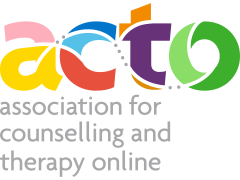Qualified Counsellor Ellie Finch explores the benefits & key considerations when using video games for working with younger clients.
Perhaps, like me, you’ve experienced the children and young people you work with talk with enthusiasm about games like Minecraft or Fortnite – and could see how much using a video game therapeutically could engage them in counselling?
I’ve been using video games in my private practice with children and young people for the past 2 years and have found it to be a great way to engage children and young people. Sometimes I simply talk about a child’s favourite video game with them; I might ask them what character they like to play, and this can lead to an exploration of their identity. Sometimes I watch a child play and might reflect back to them what I observe. For example, a child with low self-esteem might do something kind for another character in a game and I reflect back to them what I’ve seen of them in the game. Often, I will play the game with the child and together we might play hide and seek, battle monsters, build a castle among many other things.
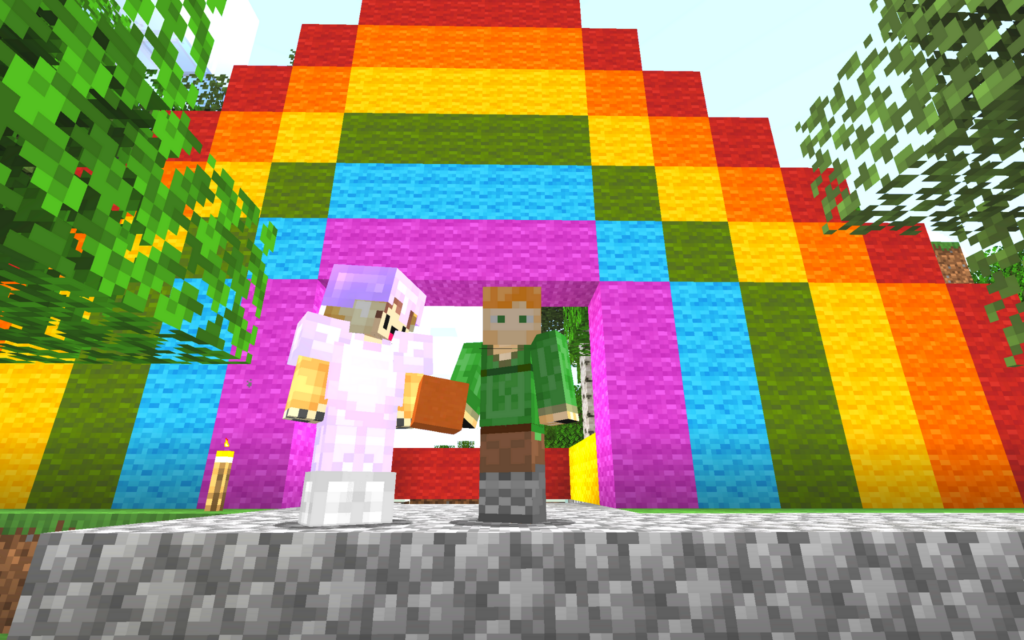
Games I’ve played with clients include Roblox, Fortnite, Among Us and Animal Crossing. But the game I’ve found most safe, accessible and useful therapeutically is Minecraft.
Before starting to use video games in your practice, there’s a number of important points to consider. I shall map these considerations to the ACTO CYP competences:
ACTO CYP Competency: Psychological Processes relevant to Online Therapy
Ever since I started using Minecraft in my practice I’ve been bombarded with enquiries from parents who can instantly see how it would engage their child in counselling. Often the parents have children who would otherwise not have engaged in counselling if it hadn’t been for Minecraft. However, it’s important to recognise that using a particular video game in sessions might not be suitable for all children. For example, if the child has been struggling with coming off a game to take part in other activities at home, they may struggle with the end of counselling sessions. This can actually be a great opportunity to explore the reasons why they find it hard to come off the game but you may also need to work on setting boundaries around use of games in sessions. In addition, if a client is struggling with not feeling contained in their life, then you will want to consider the landscape of the game you play. For example, Minecraft worlds are enormous and in order to create a more contained space, almost like a sandtray, I provide a physical boundary such as an island or a wall around the space we work in.
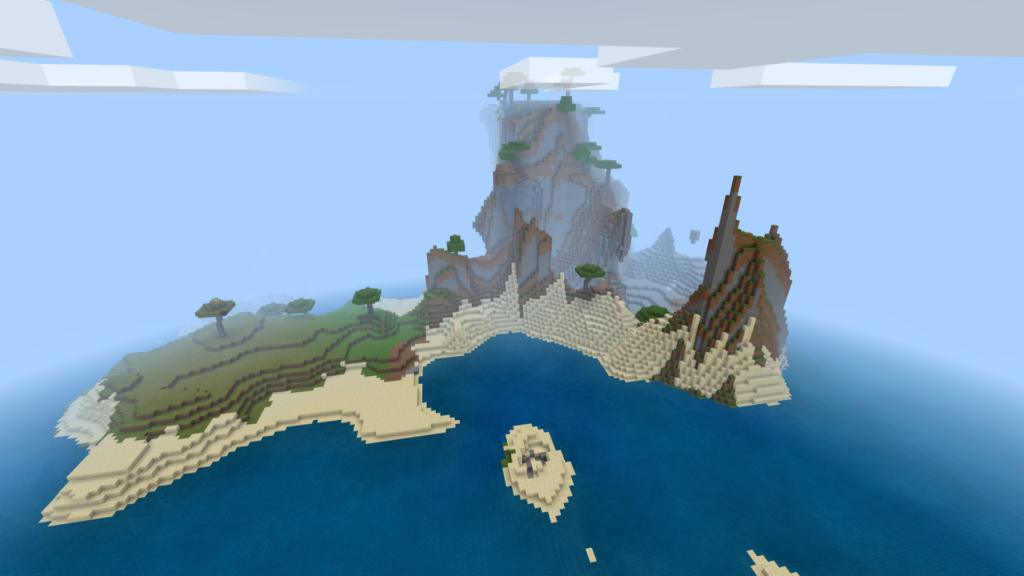
I always ask my clients to create a safe place in the game in their first session. This is a place they can come back to at any time if they need to. A safe place can be anything, a cave, a house, a castle…
It also helps to understand the culture of video games and the video game you chose to play itself. For example, terms like ‘griefing’ are useful to know; griefing is a type of online bullying. In Minecraft griefers are players that destroy other players creations. When using Minecraft therapeutically however you can create a private world just for your clients so this can’t happen. In addition, the social side to gaming can be really important to players and the relationships they have through the game are just as significant as their in-person relationships.
ACTO CYP Competency: Assessment of clients for online therapy
Factors to consider when working online using a video game are:
- Does the place where the child will be having their counselling have good enough internet connection to run the game as well as a video platform such as Zoom?
- Is the child already playing the game online with other people? If not, you need to work with the parent/carer and child to educate them on online gaming safety, playing on servers with strangers etc. Minecraft Education has an in-built game called ‘Cybersafe: Home Sweet Hmm’ that takes the player through some internet safety challenges and helps the player to come up with strategies to keep safe online: https://education.minecraft.net/en-us/lessons/cybersafe-home-sweet-hmm (This game is available on Minecraft Education and Bedrock editions)
ACTO CYP Competency: Contracting and Boundaries
Having an agreement with the client around the use of a video game (or any digital therapy tool or resource) is essential.
My contract, for example, contains the following:
- Information about the potential benefits of using Minecraft therapeutically as well as the potential challenges.
- What they can expect a session using Minecraft to be like.
- Boundaries such as the way we will communicate, how I will ‘unfriend’ them after each session and that I won’t be inviting anyone else into their private Minecraft world.
- What we will do if we can’t connect in the game or lose connection.
- I’m also clear about my level of competency in the game (please don’t feel you need to be an expert player – you need to be familiar with game controls, but most important is that you know how to keep your clients safe in the game).
ACTO CYP Competency: Data Protection
It’s essential to clearly explain any potential data protection risks of each game you play to a client.
I provide a clear, age-appropriate explanation of what ‘data protection’ and ‘GDPR’ mean, along with information about security standards (i.e. does the game have an ISO27001 certificate), where the location data is stored (i.e. outside of the UK, outside of EU, or in the US, for example, where they have different data protection laws).
It’s also important to clearly state how you will take steps to protect your client’s data in relation to the game and the limitations of this.
For example, I save a copy of the world after each session which is saved locally on my computer (and backed up to an external, encrypted hard-drive). My computer is password protected and I have installed anti-virus and firewall. I run updates on my computer regularly to ensure the security measures are up to date.
ACTO CYP Competency: Communication in online therapy
I do not advise using the communication channels within a video game. Instead, I use my usual video platform or the telephone (you may find using the telephone helps with internet connection issues).
I ask my clients not to use the chat function in the game. I also ask my clients to not write anything on signs or boards etc in the game that discloses personal information such as names, locations etc.
You will also need to get used to the idea that if you are embodying a character in a game alongside your client then your movements and body language as that character will be forming part of your communication with your client – much in the same way as our body language in real life forms part of our communication.
ACTO CYP Competency: Creativity in Online Therapy
Video games provide a great online resource for adapting in-person therapeutic resources.
For example, I use Minecraft much like a sandtray by asking clients to create scenes using items and characters in the game which they can select from a vast inventory (a bit like having rows of miniatures on shelves in your therapy room).

I also have a family tree activity where I ask clients to select different coloured and textured blocks to represent themselves and their family and place them in a tree.
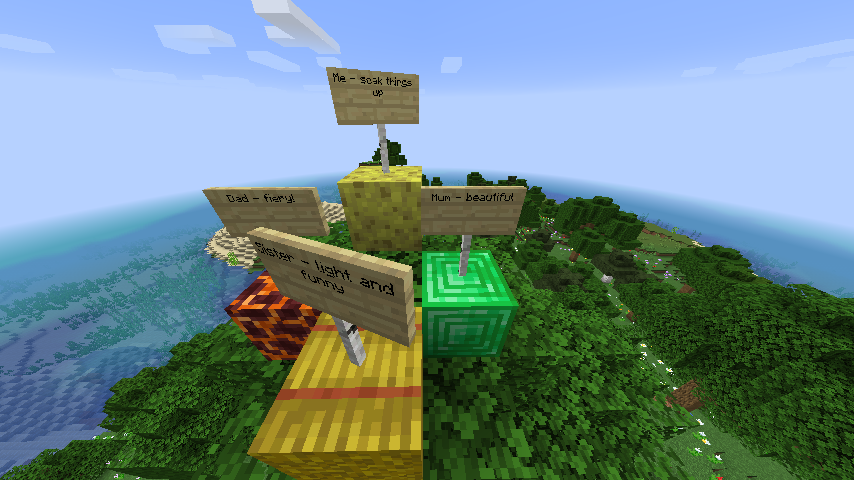
Here are some links to resources and publications about my work:
I have a section in Jessica Stone’s book ‘Digital Play Therapy: A Clinician’s Guide to Comfort and Competence’ on using Minecraft as a sandtray: https://www.routledge.com/Digital-Play-Therapy-A-Clinicians-Guide-to-Comfort-and-Competence/Stone/p/book/9780367755539
BACP’s Children, Young People and Families Journal featured an article about my work which includes a case study: https://www.bacp.co.uk/bacp-journals/bacp-children-young-people-and-families-journal/december-2021/therapeutic-adventures-in-minecraft/
I have made a 10-minute video for parents introducing them to how I use Minecraft therapeutically by taking them on a journey around my Minecraft island that can be viewed on my website here: https://www.elliefinch.co.uk/counselling-using-minecraft
I have a free webinar also available on my website where I introduce how I use Minecraft therapeutically: https://www.elliefinch.co.uk/events
ACTO CYP Competency: Managing Risk and Safeguarding Issues
Top tip: There are three main editions of Minecraft: Java Edition (available on Mac and Windows), Bedrock/Windows Edition (available of PC, iPhone and iPad, Android, and a range of games consoles including Switch, PlayStation and Xbox) and Education Edition (available on Windows, Mac, iPad, and Chromebook)
Just like working online creates more issues around safeguarding and risk; video games can add a few more to consider. You want to be sure that you are familiar with the video game’s security and privacy settings and have them enabled for yourself and have also advised the client and their parent about how to enable these settings. For example, many video games, including Minecraft (excluding Minecraft Education Edition) are part of social media networks like the Xbox Network. This means that unless you have enabled certain privacy settings your clients may be able to see your friends list, see when you are online, what games you are playing and with who etc. I have written two extensive blog posts for parents about keeping their child safe in Minecraft which is also useful for practitioners using Minecraft Bedrock and Java editions: https://www.elliefinch.co.uk/post/essential-steps-for-keeping-your-child-safe-when-they-are-playing-minecraft-bedrock-edition
Last year Minecraft Education Edition became more widely available to purchase and this is exciting news for therapists as, due to it being designed for use in school settings, it is a lot safer to use with clients than Java and Bedrock Editions. I’ve also written a blog post about the pros and cons of using Minecraft Education Edition: https://www.elliefinch.co.uk/post/why-i-m-using-minecraft-education-from-now-on
Playing video games with clients, can provide a great opportunity to talk about online safety and check in with them about their online life. It is essential you do some training in online safety if you haven’t done so already.
ACTO CYP Competency: Endings and Supervision
Endings in video games can be incredibly poignant and meaningful – whether it be taking a screenshot of your characters together one last time or planting a tree together in the client’s world. I ask permission to take screenshots of the client’s work in the game, you can create a document together and use it to review the work at any time, including in the final sessions. It’s also something they can keep.
I’d advise practitioners looking to start using video games therapeutically to seek consultancy and training before starting to work using video games and connect with professional peers already working in this area.
It’s also important that you have a supervisor that either uses video games in their own practice or is open to learning about using video games alongside you.
Next steps
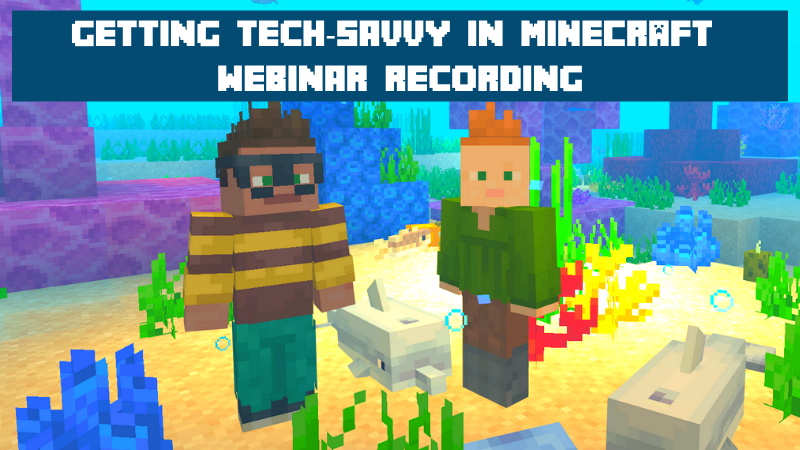
As you can see, there’s a lot to consider when incorporating video games into your practice. There’s also additional factors to consider that sit outside the ACTO CYP competences such as making sure you are working within the terms and conditions of the video game license terms and conditions.
I’ve been inundated with enquiries from parents telling me their children are actually excited about the idea of counselling using Minecraft. And, seeing the huge amount of interest there is amongst counsellors and other professionals in using video games like Minecraft therapeutically, I have been training other professionals and organisations in how to use video games therapeutically and safely with their clients.
You don’t need to be a gamer to use video games therapeutically, but you do need to have some confidence using technology so that you can troubleshoot any technical issues that arise. My Getting Tech-Savvy in Minecraft webinar can help you get to grips with the technical side of using Minecraft therapeutically: https://www.elliefinch.co.uk/shop
I also provide 1-to-1 and small group consultations, bespoke training to organisations as well as an upcoming training course on using Minecraft therapeutically.

Ellie is also part of the team of ACTO CYP therapists who have just updated the ACTO competences for CYP online therapists which were used throughout this blog post
For further information please email Ellie: ellie@elliefinch.co.uk
Ellie Finch
All images used are taken by the author. Ellie Finch’s services are NOT AN OFFICIAL MINECRAFT PRODUCT. NOT APPROVED BY OR ASSOCIATED WITH MOJANG OR MICROSOFT.
